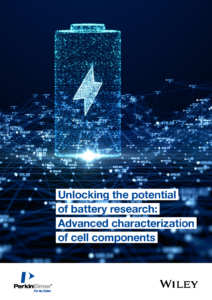Battery research is essential for meeting the growing demand for reliable, efficient, and cost-effective energy storage solutions. Research is focused on improving battery performance, safety, and lifespan while reducing their environmental impact.
One key area of research is the advanced characterization of cell components, including electrodes, separators, and electrolytes, to optimize battery design and performance. Battery recycling is another critical area of research, with the development of new technologies to identify and extract valuable materials from used batteries for reuse and re-manufacture. Energy storage research is focused on finding new and improved ways to store energy efficiently and safely, with a focus on different materials and chemistries and the use of advanced technologies such as flow batteries and supercapacitors.
This Expert Insight presents recent research on solid polymer electrolytes (SPEs), recycling methods for lithium-ion batteries (LIBs), and cathode degradation during extreme fast charging (XFC) of electric vehicles.

What you will learn:
How SPEs can improve battery stability and overcome toxicity and degradation issues
How flash recycling can improve the rate performance and electrochemical stability of LIBs
The importance of exploring cathode degradation issues for low Ni-containing MNCs
Articles contained in the collection:
Three-Component Solid Polymer Electrolytes Based on Li-Ion Exchanged Microporous Silicates and an Ionic Liquid for Solid-State Batteries. (Barbosa et a)
Flash Recycling of Graphite Anodes. (Chen et al.)
A Comprehensive Understanding of the Aging Effects of Extreme Fast Charging on High Ni NMC Cathode. (Tanim et al.)

